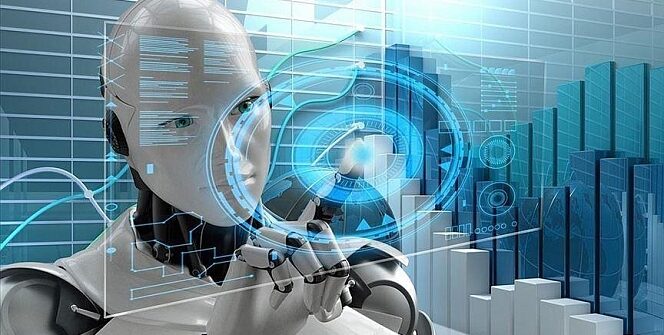TECH NEWS – Artificial intelligence (AI) is being integrated into the economy and industry at a dizzying speed and is changing our lives. We are witnessing a new industrial revolution. AI does not replace but complements human knowledge: it makes decisions and business processes more efficient, faster and better. The question today is not only what artificial intelligence will be capable of, but also how it will affect our everyday lives, said Bosch×Richter at the Innovators’ Day conference.
In 2023, the world’s TOP3 online giants will spend a total of 120 billion dollars on developments related to artificial intelligence, which clearly shows the importance of the field. Hungary also has an Artificial Intelligence Strategy, the objective of which is to achieve a 15% GDP increase by 2030 through the adaptation of AI. Among domestic SMEs, it is important to achieve a 26% increase in added value per capita, and to have 1 million people working in jobs where AI is used in the performance of tasks, explained Jakab Roland, president of the Artificial Intelligence Coalition.
Major players in the vehicle industry have also committed themselves to AI technology. At the international Bosch group, it will already be realized this year that all of the company’s products and solutions either contain artificial intelligence-based technology, or AI will play a role in its development and production. The Bosch Budapest Innovation Campus, handed over last year, is also actively involved in all of this, which is the second largest R&D center of the international company in Europe, Bosch informed.
Like in the movies – from machine vision to fully self-driving cars
The capabilities of artificial intelligence in the fields of machine vision and image processing are already being used by the vehicle industry. The recognition of environmental objects is constantly improving, so higher and higher levels of self-driving become possible. Thanks to Bosch’s AI technology, for example, after getting out of our suitable car in the Stuttgart airport parking garage, the vehicle can park itself for us, and with the help of a smart watch, we can even call the car to us via an application – just like in the movies. Not only in driving, but also in the field of industrial vehicles, artificial intelligence is currently being applied. One example of this is the AI-based off-highway radar system developed by Bosch, which recognizes the elements of the environment, with the help of which even the safety and productivity of construction and agricultural machines can be significantly improved – said at the conference Gyula Halmos, Bosch’s senior engineer working in the field of data cloud and automation.
Artificial intelligence in factories
For innovative companies, the introduction of AI in the future will be a “must have”, almost a mandatory step, not only in the field of development, but also in the field of production. Currently, one of the main tasks in production is to create the prerequisites necessary for the use of AI. In the case of existing technologies that have been in operation for a long time, it is worth analyzing the benefits of the development required by AI (e.g. retrofitting of sensors, digitalization) and in which areas it is worth using. With new production capacities, in the case of today’s technologies, this is not a question, because the level of digitization required for the introduction of artificial intelligence is already given – Attila véli Sénási, director of pharmaceutical production at Richter Gedeon Nyrt.
Cheaper and more reliable products with the help of AI
With the involvement of AI, even complex industrial processes such as car manufacturing can be made more efficient and economical. For example, artificial intelligence connected to cameras is already able to filter out defective parts “by sight” after proper training in the early stages of production. Defective components, such as chips, are thus not incorporated into more complex sub-assemblies in the first place, and ultimately not even into vehicles. This reduces the probability of car breakdowns and makes their operation more reliable. The economic loss will also be much smaller if a defective component is scrapped in the early stages of the value chain, as if it were to be installed in a complex and expensive equipment or vehicle and cause a serious error later –
From ChatGPT to BoschGPT: language models at the service of industry
Don’t think that AI can only be used in image processing and analysis in industry. In addition to the well-known ChatGPT, which is available to anyone and works from internet information, the development of “BoschGPT” is already underway. With this, the company paves the way for the industrial use of artificial intelligence-based language models in closed, professional systems working with sensitive business information. It is easy to see how much faster and more efficient it is to operate or repair a complex production system if, instead of browsing thousands of pages of manuals, we can get an immediate answer to a few verbal technical questions with the help of artificial intelligence, the Bosch expert mentioned as an example.
Smarter and smarter robots
In addition to analytical and decision-making AI, generative, creative artificial intelligence is gaining more and more space in industry, and as part of this, it is expected that the development of robotics will also accelerate. By learning more and more industrial data, robots will be able to perform multiple and increasingly complex tasks intelligently. Machines will become smarter, AI will take over many operations, and people will be able to engage in more creative, higher value-added tasks – véli Prof. Dr. Péter Galambos, professor of robotics at Óbuda University.
Precision therapies tailored to the individual
Healthcare is one of the areas where people expect the most from the development of artificial intelligence, according to a joint poll by Bosch and Richter. According to expert opinions presented at the Innovators’ Day conference, AI can indeed bring great progress in the diagnosis and treatment of diseases. Artificial intelligence will become an indispensable part of medicine’s toolbox. With the help of AI, the selection of patients’ medications and the adjustment of doses will be much more customizable than today. This AI-based precision medicine could make therapies more effective and reduce side effects in the future – expressed his expectations dr. Bence Kovács, head of the General Medicines Global Business Unit at Richter Gedeon Nyrt.
The development of new medicines can be accelerated
It is well known that the development of new medicines is a long, many-year process, but it does not matter how long it is. With the help of artificial intelligence, the turnaround time can be shortened. In the first, preclinical phase of drug research, AI can make development faster and more economical by designing and selecting the right molecules. However, the duration of the subsequent clinical tests is already prescribed by law, there is less room for maneuver here, but with the involvement of artificial intelligence, it can definitely be faster and more cost-effective to bring new medicines to the market –
Man is irreplaceable and will remain so
Since the introduction of the EESZT, Hungary has been one of the countries rich in data from a health point of view. With the involvement of artificial intelligence, a lot of useful conclusions and results can be obtained from this constantly expanding, organized mass of data, which serve prevention, healing, and even save lives. With the help of AI, complex risk factors of diseases, hidden causes of death, weak points of the care system or even potential new uses of existing medicines can be quickly and efficiently searched for. The accumulated health data assets represent a value whose use with artificial intelligence should be managed at a national strategic level. In the longer term, healthcare will not be sustainable if certain processes cannot be automated using AI. At the same time, artificial intelligence will not be able to replace human contact, people will always be needed for healing – made clear by dr. Miklós Szócska, dean of Semmelweis University’s Faculty of Public Health Services.
Source: Bosch press release



![[TGA 2025] Star Wars: Galactic Racer Focuses on High-Stakes Podrace Runs [VIDEO]](https://thegeek.games/wp-content/uploads/2025/12/theGeek-Star-Wars-Galactic-Racer-302x180.jpg)









![[TGA 2025] Star Wars: Galactic Racer Focuses on High-Stakes Podrace Runs [VIDEO]](https://thegeek.games/wp-content/uploads/2025/12/theGeek-Star-Wars-Galactic-Racer-300x365.jpg)


Leave a Reply